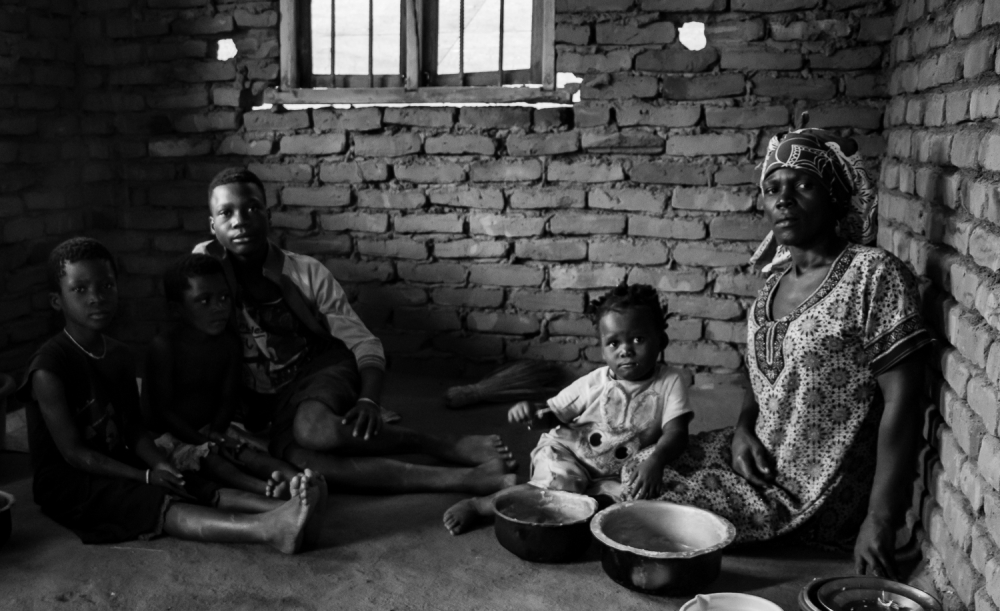

A rural women in Malawi finishes feeding her children. She relies on fuel wood for power, as do most rural Malawians. Powerless to alter global climate change impacts or policy, with little ability to influence national grid and energy planning systems, or the ability to pay much for power, she will continue to pay in effort and risk, by walking further each day in her struggle to collect the fuelwood needed to prepare dinner for her family.
Plight of the Powerless
Photographer: Paul Scherzer
Exhibit Title: Plight of the Powerless
Location: Malawi
Access to affordable power and where it comes from is one of the world’s key global issues and challenges to solve. Politicians and economists debate trade-offs between economic activity, coal-generated power and renewable energy sources. Climate change scientists, NGOs and activists debate and protest themes such as global warming, deforestation and big business. Similar to poor across the globe, the rural poor in Malawi, particularly women, have limited options and experience the daily challenge of having to source energy for cooking. Their voices and stories are seldom the focus of global debates or funding. Energy justice seeks to improve social and economic equity in global and national energy systems, by better hearing and understanding the voices, needs and livelihoods of the poor and marginalized who through climate change, often bear the burden of the past century’s energy systems and decision-making.
Women in poor countries such as Malawi have the same hopes and dreams for themselves and their children as many other women throughout the world. Yet due to multiple factors outside their control, most struggle to break out of poverty. Rural women in these circumstances are trapped between trying to find and harvest ever diminishing natural resources whilst facing the increasing risk of rape, GBV or exploitation as they search for fuel wood or become further impoverished. These issues require research and practical solutions targeted and implemented in a way to sustainability solve these women's daily challenges. This is harder to achieve than often realised, identified solutions may not be sustainable in their context, funders can change priorities based on the latest global agenda, and high impact rural projects are difficult to implement and roll out at scale.
YONECO is a registered NGO working throughout Malawi to respond to issues that affect women, youth and children across the country. They run nationwide radio and other awareness campaigns, helpline call services and centres to addressing social issues such as GBV, child marriages and promote health and human rights. Through their network of on-the-ground facilitators and volunteers, they also implement various projects aimed at the economic empowerment of marginalised women and youth across both urban and rural areas.
https://yoneco.org/
www.pauljscherzer.com
Make Comment/View Comments